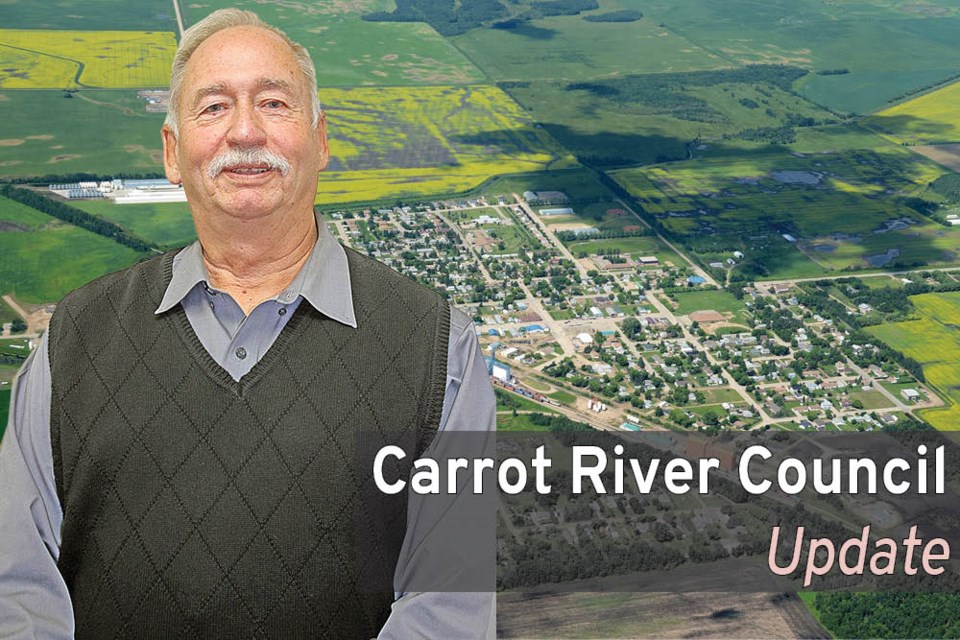It was a chance to possibly gain provincial and federal funding to fulfil a need in Carrot River.
At its Jan. 18 meeting, council voted to apply for Provincial-Territorial Infrastructure Component and Clean Water and Wastewater Fund grants for a $3.6 million water treatment plant.
“We’ve had a few problems with some of our [chemical] levels in the water that we’d like to address and this is been in the works for a while, a treatment plant,” said Bob Gagné, Carrot River’s mayor.
The town’s water is safe to drink, but the arsenic content is close to the maximum allowable standards, the water is high in sodium and the high amount of ammonia contributes to a smell that people associate with chlorine.
“We were advised by the Ministry of Environment a few years ago that if we thought we would want a new water treatment plant at some point that we should start getting stuff together, so we did the pre-design for it,” said Kevin Trew, the town’s administrator.
With the Provincial-Territorial Infrastructure Component, the province, federal government and town would each pay one-third, while with the Clean Water and Wastewater Fund, the town and federal government would each pay half.
The application does not mean the town will go ahead with a project – that would have to be decided by council later. Gagné did point out that infrastructure projects like water treatment plants tend to increase.
“If we wait,” he said, “we may have to pay a lot more money when it’s time to do it.”
Town takes over clinic
The debate about who will manage the Carrot River Clinic has been decided.
“We’ve officially taken over the medical clinic as of the first of January,” Gagné said. “That means that we are operating the clinic.”
A committee has been struck to supervise the clinic’s operation that includes the local doctors, the town and the RM of Moose Range. The town is the landlord of the clinic and the Kelsey Trail Health Region and the doctors pay rent to them.
The town is unsure how the amalgamation of the health region would affect the clinic.
“When we did enter the discussions with Kelsey Trail, it was abundantly clear – and the CEO, Shane Merriman, did make it clear – that there were no guarantees beyond that Kelsey Trail would sign the contract,” Trew said.
Subdivision making progress
Work continues to make a $1 million subdivision and a $705,000 sewer lift station a reality.
At the council meeting, council voted to change the town’s zoning map to include the future lots.
Trew said the town will be applying for approval from the province for a $1.5 million loan and is waiting for approval of the subdivision plan from the Water Security Agency, something the town is close to doing.
“Most of this is going to fall back to the municipality’s hands to get ministry approval for everything, so I’m drafting all sorts of applications for that. I hope to have those applications in before the end of January.”
The goal is to be shovel-ready this spring.
Charity audit is clean
An audit of the town’s charitable efforts by the Canada Revenue Agency showed no problems. In fact, there were no recommendations from the agency to do things differently.
“I was really happy,” Trew said. “I actually thought they were going to say, ‘you know, you should do this differently or that differently,’ but no.”
The administrator said the audit results bode well for the small charitable donations the town receives and passes on to local organizations, as well as the Pasquia Trust.
“It’s nice to have that capacity of giving out [charitable tax] receipts,” Gagné said.




